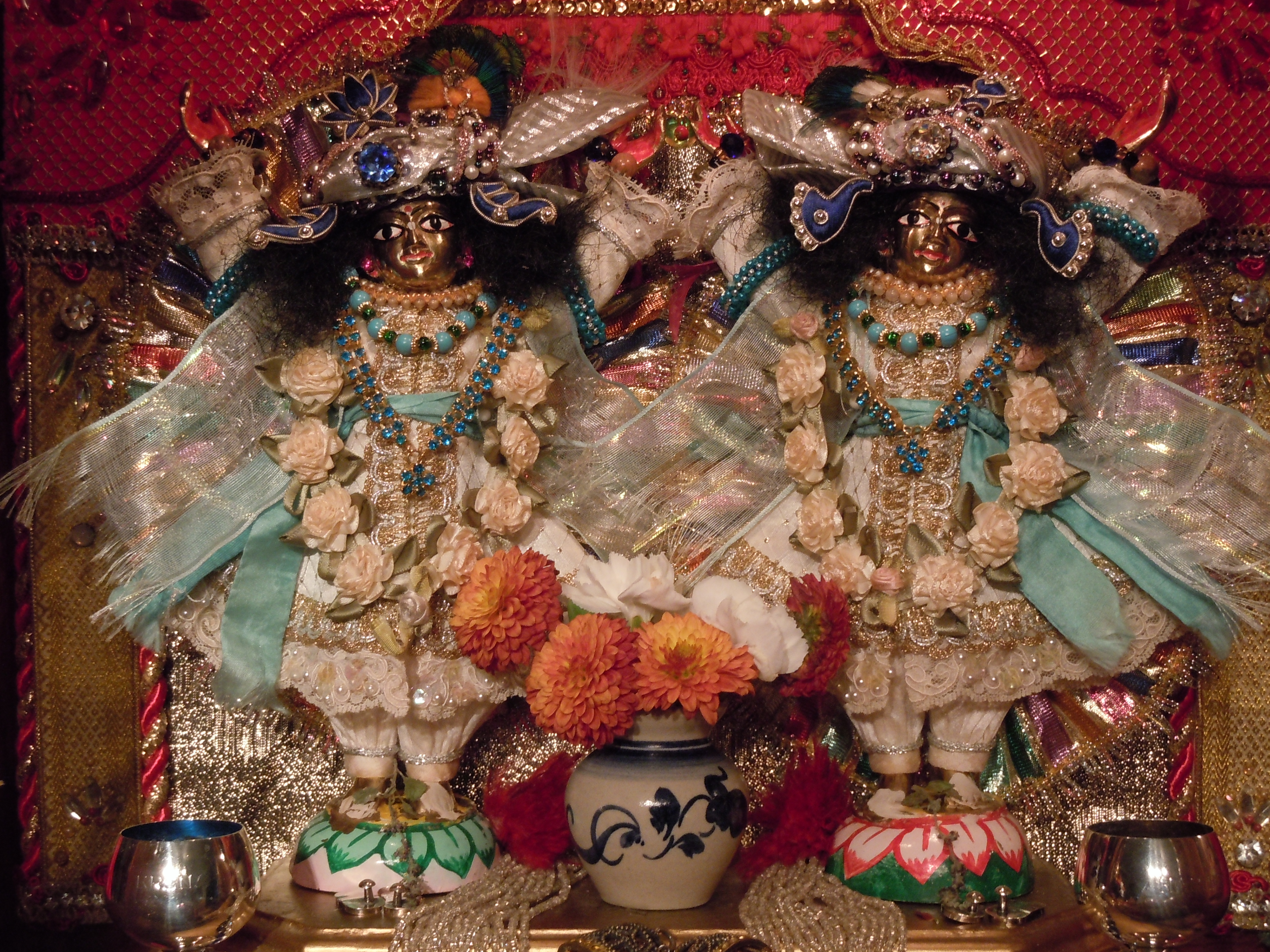Bhakti begins when is…, one is actually liberated from the influence of the modes of material nature. That is real bhakti. Otherwise, when you are, we are in training, that is called prakṛta–bhakta. Actually, we are in the material state, but we are being trained up, the Deity worship. This is, following the rules and regulations under the instruction of spiritual master. Or Vedic injunction, this is training period. But even in the training period, if one is sincere and serious, he’s liberated. He’s liberated. It is so nice. Kṛṣṇa consciousness is so nice that even in the training period, although he’s not mature, and even one falls immature stage, there is no loss. That is also confirmed by Nārada Muni: tyaktvā sva–dharmaṁcaraṇāmbujaṁ harer patet tato yadi apakva… [SB 1.5.17]. There is a verse like this that if one is engaged in Kṛṣṇa consciousness and, without being mature, somehow or other, if he falls down, there is no loss, whereas other persons, who are sticking to their sva–dharma,(materialistic religion) but has no idea of Kṛṣṇa consciousness, he does not gain anything. These are the statements of Nārada. Therefore our position should be, our real active life begins when we begin to serve Kṛṣṇa with our senses without being designated, without being situated in designation. This is transcendental stage. NOD Nov 2 ’72 Vrn
Sb 3.29.8 P In pure devotional service, the only motive should be to please the Supreme Personality of Godhead. That is not actually a motive; that is the pure condition of the living entity. In the conditioned stage, when one engages in devotional service, he should follow the instruction of the bona fide spiritual master in full surrender. The spiritual master is the manifested representation of the Supreme Lord because he receives and presents the instructions of the Lord, as they are, by disciplic succession. It is described in Bhagavad-gītā that the teachings therein should be received by disciplic succession, otherwise there is adulteration. To act under the direction of a bona fide spiritual master with a motive to satisfy the Supreme Personality of Godhead is pure devotional service. But if one has a motive for personal sense gratification, his devotional service is manifested differently. Such a man may be violent, proud, envious and angry, and his interests are separate from the Lord’s.
Conclusions-– Unless one is liberated he cannot serve the Supreme Lord, just like one cannot enter fire without becomming fire like. Similarly, when one follows the bona fide spiritual masters orders,one are in the liberated state of life, even though we may be neophytes.
The example given is that when a master electrician gives his instructions to the apprentice, that neophytes actions are just like the masters, if followed exactly.
Hare Krsna
Damaghosa das




